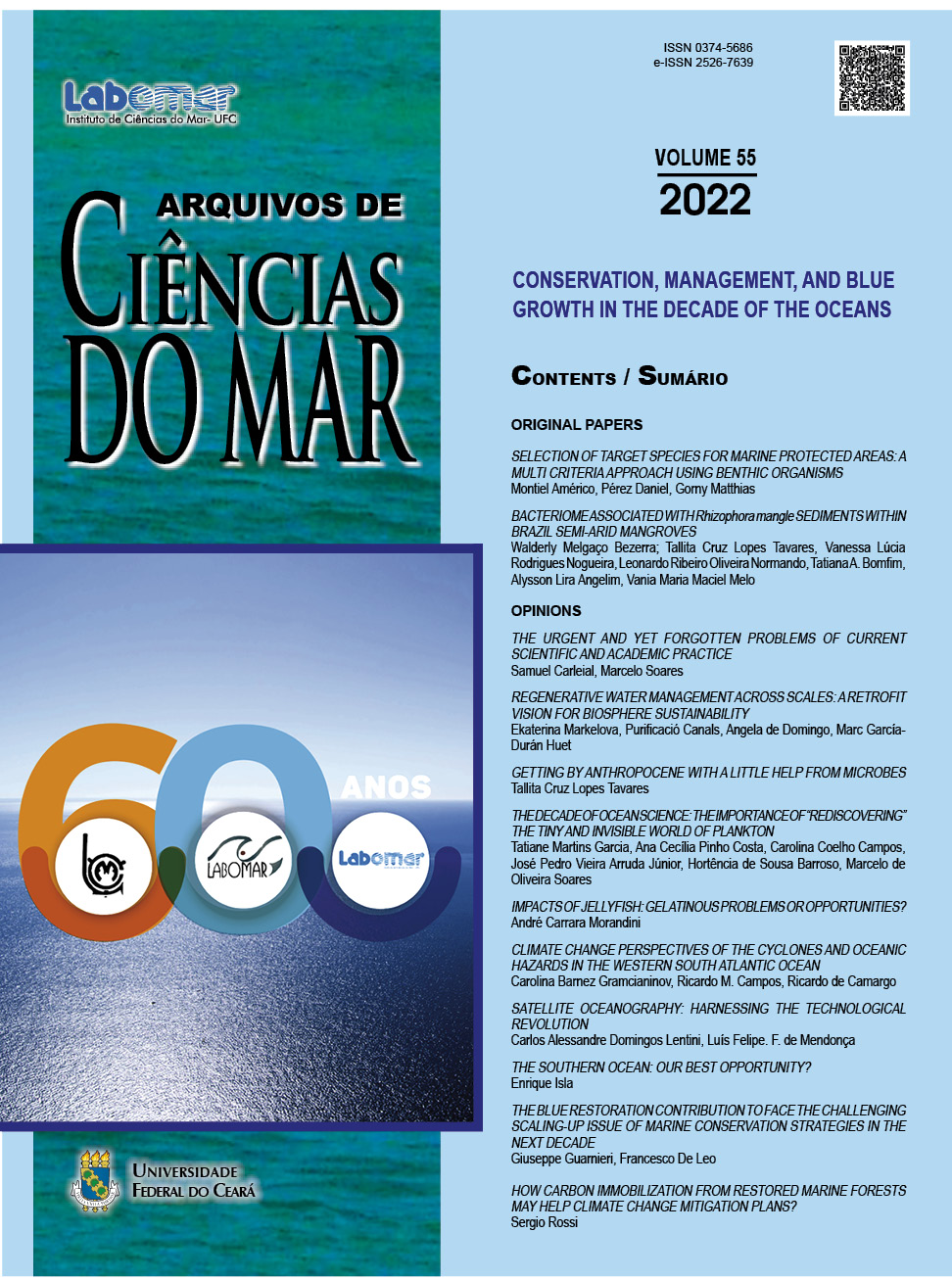MICROALGAE AS A PROMISING ALTERNATIVE FOR DEVELOPMENT OF BIOREFINERIES: MAIN TECHNOLOGICAL AND ECONOMICAL CHALLENGES
Microalgas como alternativa promissora para o desenvolvimento de biorrefinarias: principais desafios tecnológicos e econômicos
DOI:
https://doi.org/10.32360/acmar.v55iEspecial.78410Resumen
Biorefining is sustainable biomass processing to obtain energy, biofuels and high value products through different technologies and processes for biomass transformation. On the other hand, microalgae have been received great interest as a biofuel feedstock in response to the uprising energy crisis, climate change and depletion of natural sources. However, the development of microalgal biofuels does not satisfy the economic feasibility to reach commercial status. Due to this, different high-value co-products have been produced through the extraction of microalgae fractions to improve the economical profile of this technology, generating in this way the microalgae biorefineries. Examples of these high-value products are pigments, proteins, lipids, carbohydrates, vitamins, and antioxidants, with applications in cosmetics, nutritional and pharmaceuticals industries. To promote the sustainability of this process, an innovative microalgae biorefinery structure is implemented through the generation of multiple products, usually in form of biofuel and other high value
products. This review presents the current challenges in the extraction of high value products from microalgae and its integration in the biorefinery. It describes the general characteristics of microalgae, and their potential to be used as a raw material in the biorefinery process.
Keywords: microalgae, bioenergy, bioproducts, biorefineries.
Descargas
Publicado
Número
Sección
Licencia
1. Proposta de Política para Periódicos de Acesso Livre
Autores que publicam nesta revista concordam com os seguintes termos:
- Autores mantém os direitos autorais e concedem à revista o direito de primeira publicação, com o trabalho simultaneamente licenciado sob a Licença Creative Commons Attribution que permite o compartilhamento do trabalho com reconhecimento da autoria e publicação inicial nesta revista.
- Autores têm autorização para assumir contratos adicionais separadamente, para distribuição não-exclusiva da versão do trabalho publicada nesta revista (ex.: publicar em repositório institucional ou como capítulo de livro), com reconhecimento de autoria e publicação inicial nesta revista.
- Autores têm permissão e são estimulados a publicar e distribuir seu trabalho online (ex.: em repositórios institucionais ou na sua página pessoal) a qualquer ponto antes ou durante o processo editorial, já que isso pode gerar alterações produtivas, bem como aumentar o impacto e a citação do trabalho publicado (Veja O Efeito do Acesso Livre).

